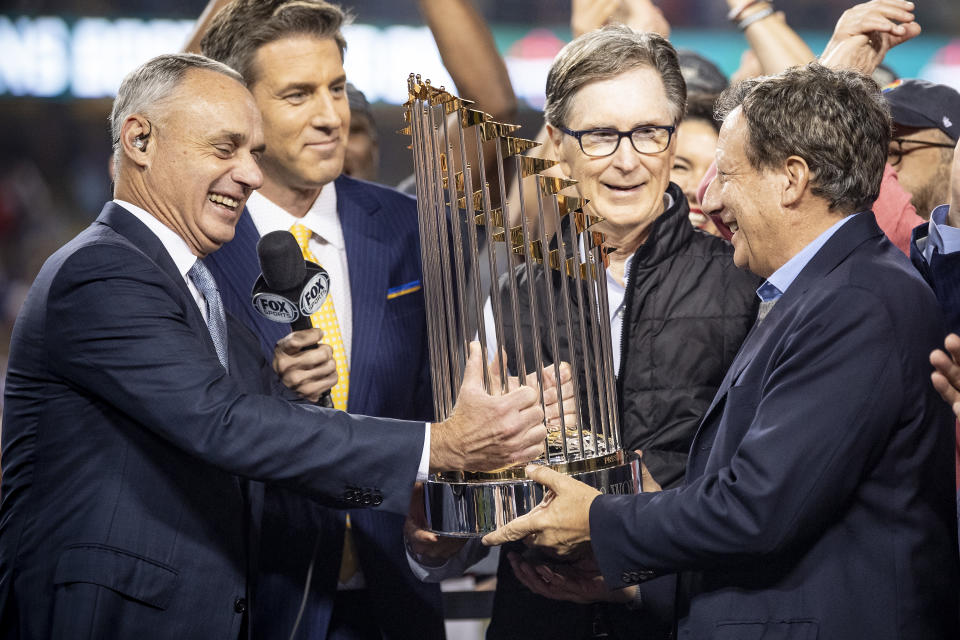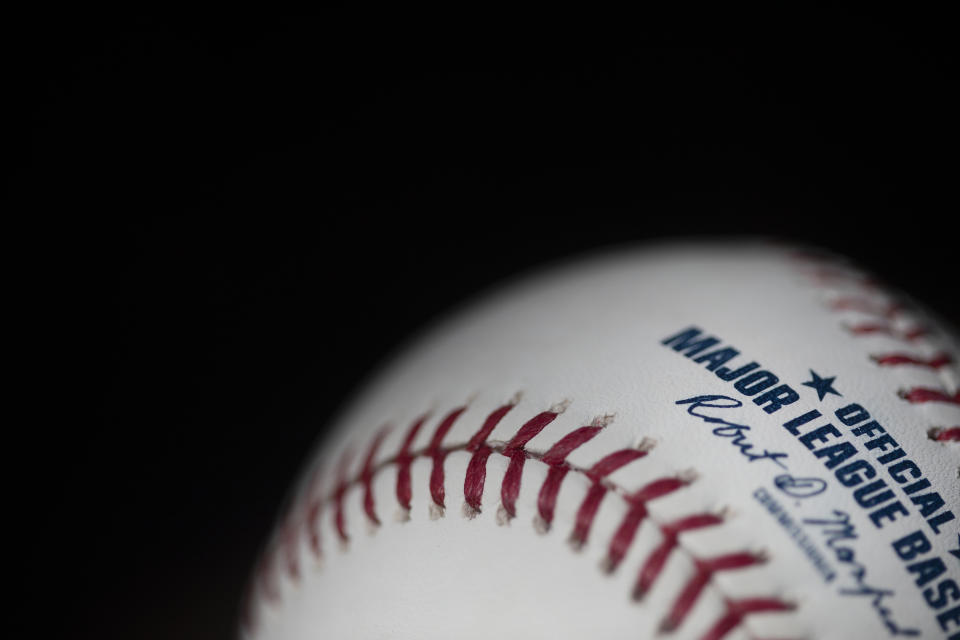Who deserves what? Optimism creates urgency, not agreement in baseball's bid to restart season
In the fourth week of May, with not a pitch having been thrown, with governors opening ballparks, players creeping back into those facilities, general managers outlining schedules, and with fans leaning in, there remains a single game.
There, where the notions of progress and impasse are real and feigned. Same as the bays of outrage and disgust and hopelessness. There, where, possibly, the 2020 baseball season lies.
Major League Baseball owners and players decided on Tuesday, the final Tuesday in May, that they could not live with each other for at least another news cycle. Soon enough, days in which baseball could have been played — either in preparation for the games or the games themselves — will be the exhaust from an owners-players labor apparatus that plenty often seeks to harm itself or try.
On day one or 12 or 60 of these negotiations, depending on where the counting starts, owners proposed a sliding economic system that would protect the lower-paid players more at the expense of the higher-paid players. This system replaced the revenue sharing version that was panned by the union and abandoned by owners before it even hit the table. In Tuesday’s iteration, pre-arbitration players would receive close to their full, prorated salaries over however many games are played. Wealthier players would foot that bill, according to the plan, by forgoing — in some cases — more than half of their already prorated salary.
The union believes, or says it believes, the original agreement from late March established prorated salaries as the deal, regardless of attendance. The plan, at the moment and for the foreseeable future, is for attendance to be zero.
“We made a proposal to the union that is completely consistent with the economic realities facing our sport,” MLB said in a statement Tuesday. “We look forward to a responsive proposal from the MLBPA.”
The MLBPA pointed out, “The proposal involves massive additional pay cuts,” revealed it is “extremely disappointed” and said, for good measure, “The sides remain far apart on health and safety protocols.”
And, OK, this is what it looks like when years of acrimony and mistrust collide across an hour long conversation that tries to determine who deserves what.

The owners are losing money or not making as much as they’re used to, which they appear to view as the same. The players have been jerked around for about long enough, and are hand shy when an economic partnership is declared going on three months since the most daunting effect of the news was to try not to touch their own faces.
So day one or 12 or 60 was probably not going to have Tony Clark and Rob Manfred fall into each other’s arms.
What they could grant, however, is a common enemy, that being the very reason for these negotiations, the reason there is urgency for them: optimism.
In the third month of stay-at-homes and dark headlines and 100,000 deaths and 40 million unemployed, there actually could be baseball. It could actually be the first team sport back. Baseball could trim a few hours from the endless days. Owners could make some of their money back. Players could earn some.
As those negotiations relate to growing optimism the game could be played, the players are in the more difficult place. They should not be. However, if there is no baseball because there is no agreement, they will be the ones who are not on the field, and they will suffer the public consequences, and their bosses will ride behind tinted glass.
Same as in the real world.
Soon, there will be scars to trace. There will be bills to pay.
One day this will be over.
We’ll breathe again.
Maybe we’ll be able to fix what was broken, and maybe not, but it will be over in ways subtle as a sunset beer at a sidewalk table, indisputable as a jam-packed freeway for no reason at all. The voice of Gary Cohen or Len Kasper or Joe Davis keeping track of stuff.
Until then, we’ll have bucked up best we can, hidden away, raged against smoky conspiracy theories, gone blue against the hopelessness and mourned without bounds. Whatever got us through the days and into the next. The endless days.
There have been mistakes. So many mistakes.

We’ve been let down. We’ve also been inspired by gestures panoramic and narrow. We will look back and have our own stories, about how we managed it or didn’t, how we wept and laughed, how we found something in ourselves that cast its own light or darkness. Your time. Your journey. Your choice.
There’ll be little game in judgments.
When one day this is over, however, few will wish to look back on the day they considered this time, their place in it, and concluded, “I’m not playing unless I get mine, OK?”
Not the CEO of Guggenheim Partners, not the owner of Lerner Enterprises, not the chairman of Trilogy International Partners.
Not the commissioner of Major League Baseball. Not the executive director of the Major League Baseball Players Association.
Not the founder, owner and president of Boras Corp.
Not a pitcher for the Tampa Bay Rays. Not an outfielder for the Philadelphia Phillies.
What does “mine” even look like?
Well, to start with, it should look like optimism. May is in this fourth week. There’s a chance, maybe, out there, that fewer people will get sick, that more people will go back to work, that there won’t be so many mistakes. Also, maybe, they could play baseball. That’s optimism, that’s why we’re here, and that’s where there’s also going to be a little less room for “mine,” whatever and wherever that is. Possibly, it’s where the 2020 baseball season lies.
More from Yahoo Sports:



